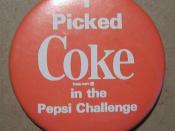International marketing is commonplace today for many United States-based companies. Decades ago, companies did not need to be as concerned with competition from foreign competitors competing domestically and competing with those same competitors internationally in overseas markets. The global economy has been growing steadily year upon year and to remain competitive and keep earnings and profits increasing, companies need to tap into foreign markets. While tapping into international markets has its rewards, companies need to be aware of the differences in marketing and advertising in international markets compared to domestic markets.
When companies decide to take a product and market that product in the international markets, the marketing strategy must be specifically tailored to each market. Knowing that the environment in which the product will be advertised and sold will be considerably different than the home country, the company cannot simply take an already established marketing plan and implement that plan in the new country.
The 'cookie cutter' approach most likely will not be a successful approach. Companies need to consider the various marketing environments in the international markets including factors such as differences in cultures and legal regulations.
Cultural EnvironmentIn examining the differences in marketing environments between the United States and India, culture is one important factor. In the United States, companies are generally dealing with the same culture. Slight differences may exist in the different regions such as the Northeast, Southeast, Midwest, and Southwest. However, in comparing culture in the United States to India, there are vast differences. Language and inferences vary greatly between the two countries. Product names and meanings may have very different translations in India. Failure of a company to adequately and appropriately verify such details prior to launching in a new market could spell disaster if the product name has a completely different meaning...



Good all around
Well structured
Well said, points made clearly and well
Flows nicely!
A very good essay! No wonder it got an A+
WELL DONE!
0 out of 0 people found this comment useful.